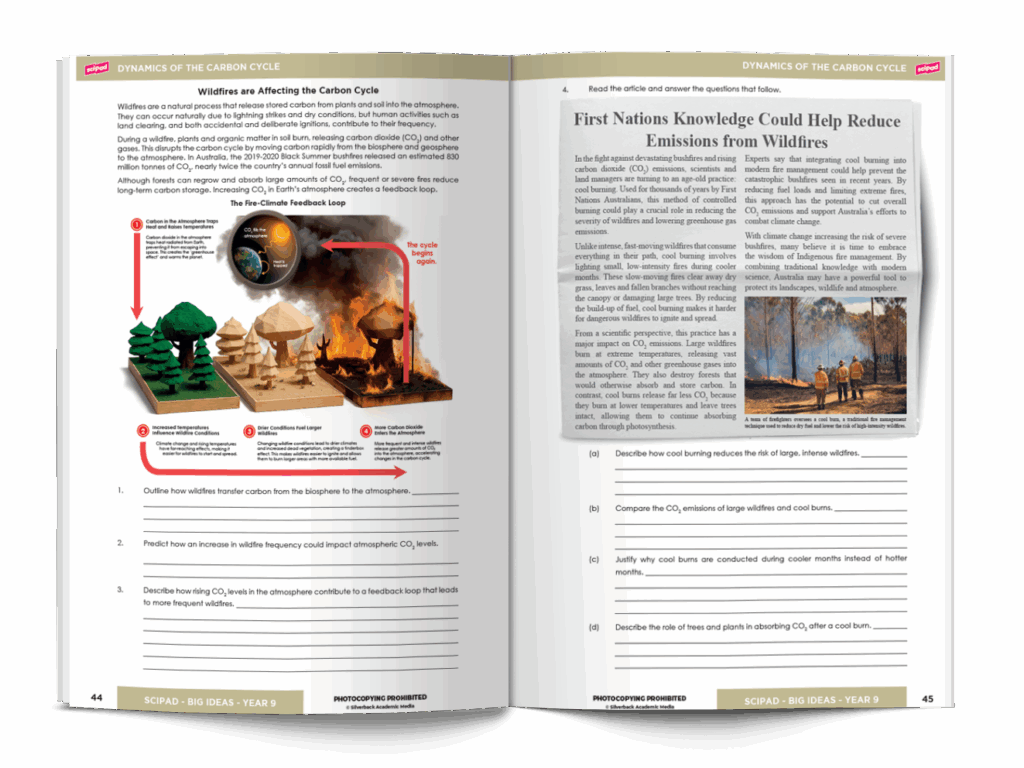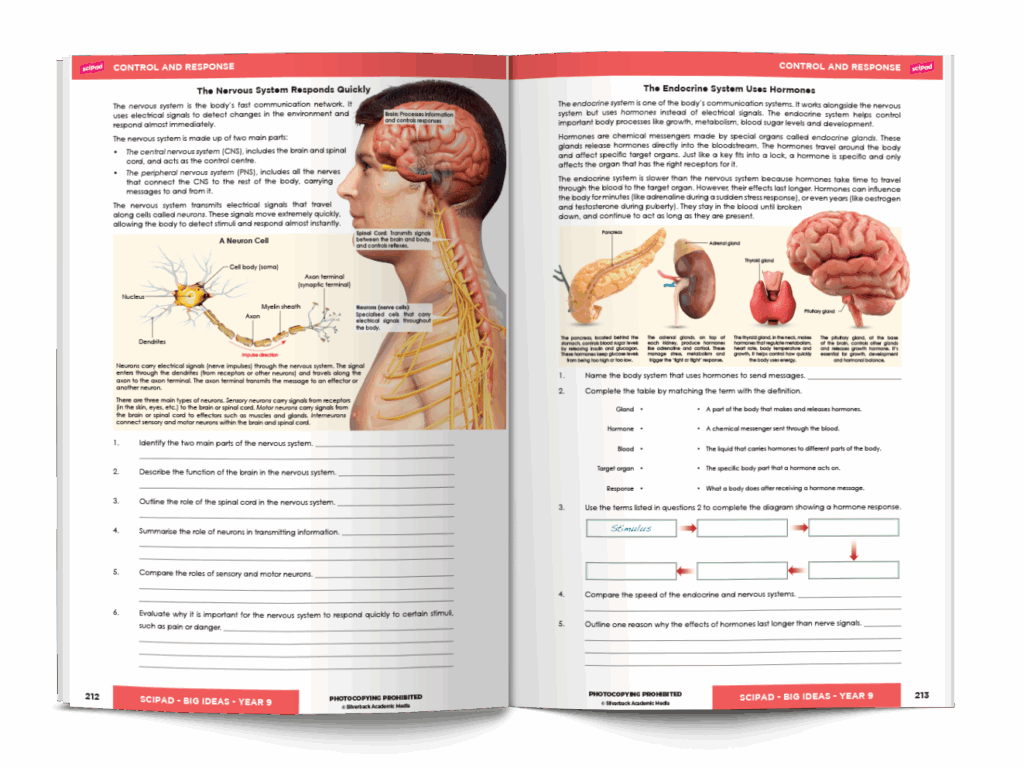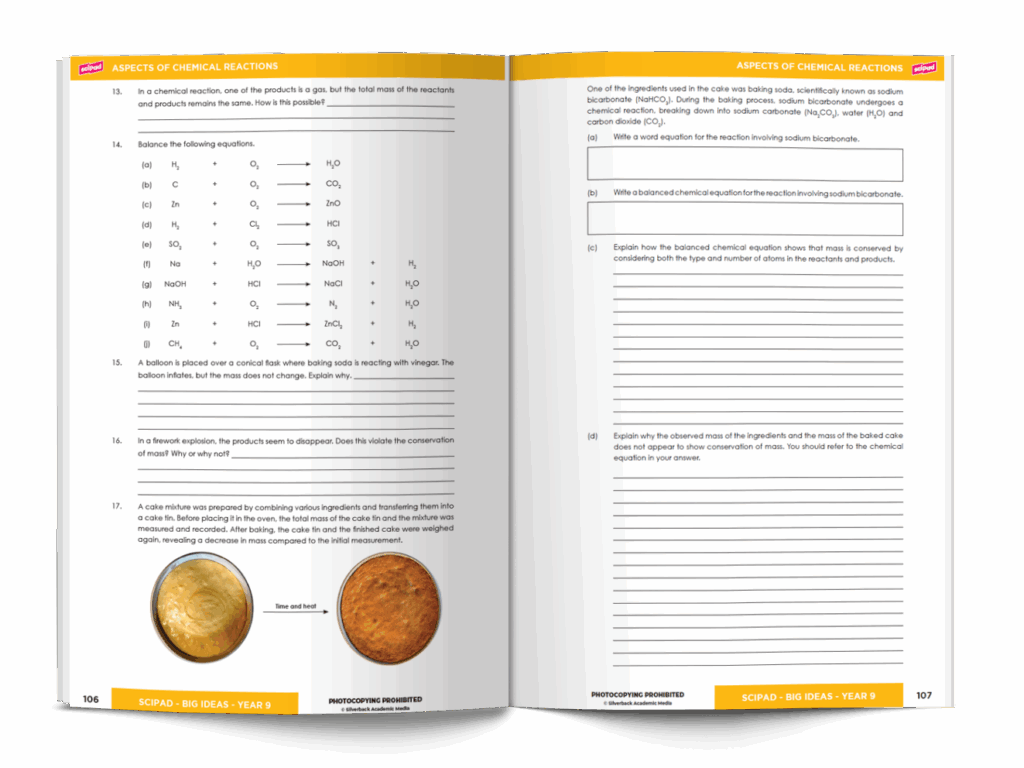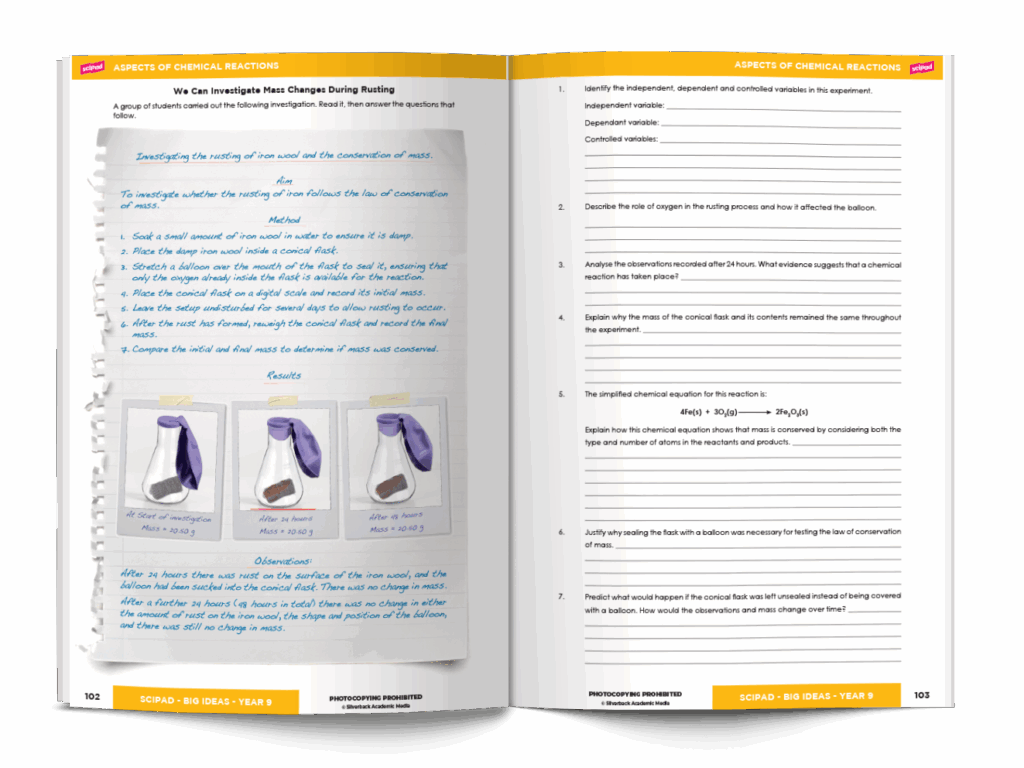

The sciPAD BIG IDEAS Year 9 workbook is a thoughtfully structured resource that enables students to explore the interconnected systems that underpin the natural world. Aligned with the Australian Curriculum (Version 9.0), it builds on prior learning and challenges students to apply scientific concepts with increasing depth and sophistication.
Across biology, chemistry, physics, and Earth and space science, students investigate how living systems respond to internal and external changes, including physiological feedback mechanisms and reproductive strategies. They explore energy and matter at the atomic level, examining how particles are rearranged during chemical reactions and how this relates to the conservation of mass. They study Earth’s carbon cycle and examine the role of feedback systems in regulating climate and ecosystems. The physical sciences focus on energy transfer and the dual wave-particle nature of phenomena such as light and sound.
Real-world examples and inquiry-based activities are used to support conceptual understanding and link science to contemporary issues. The workbook integrates First Nations Australians’ knowledges in contextually relevant ways and draws on Australian case studies, including land management, biodiversity, carbon farming, and the design of traditional technologies.
Structured explanations, step-by-step investigations, and varied response formats actively support the development of core science inquiry skills. Students learn to evaluate evidence, analyse relationships within systems, identify potential sources of error, and clearly communicate their conclusions using scientific conventions. This workbook helps teachers confidently nurture scientific literacy, critical thinking, and a deeper appreciation of how science explains and influences the world around us, both locally and globally.
KEY FEATURES OF THE SCIPAD

Fully Aligned to Version 9.0 of the Australian Curriculum
- Covers all content descriptions and elaborations for Year 9.
- Includes Science Understanding, Science as a Human Endeavour, and Science Inquiry Skills
- Explicitly linked to achievement standards for easy tracking of progress

Designed for Australian Classrooms
- Integrates First Nations Australians’ knowledges in contextually relevant ways
- Features Australian examples and case studies, including carbon cycling, land and fire management, traditional technologies, and sustainable resource use.

Student-Friendly Organisation
- Clear learning intentions and key words of each topic
- Key concepts highlighted through diagrams, summaries, and glossary support
- Encourages independent and self-paced learning with well-sequenced content

Assessment-Ready Tools
- Includes progress checks and end-of-topic review questions
- Tasks and questions are aligned to curriculum codes for formative and summative assessment
- Helps build NAPLAN-style science literacy and analytical skills

Strong Focus on Inquiry and Critical Thinking
- Provides hands-on and virtual investigations that support model development and hypothesis testing
- Guides students to consider ethics, cultural protocols, and the role of science in society
- Develops skills in data collection, analysis, and evidence-based argument
